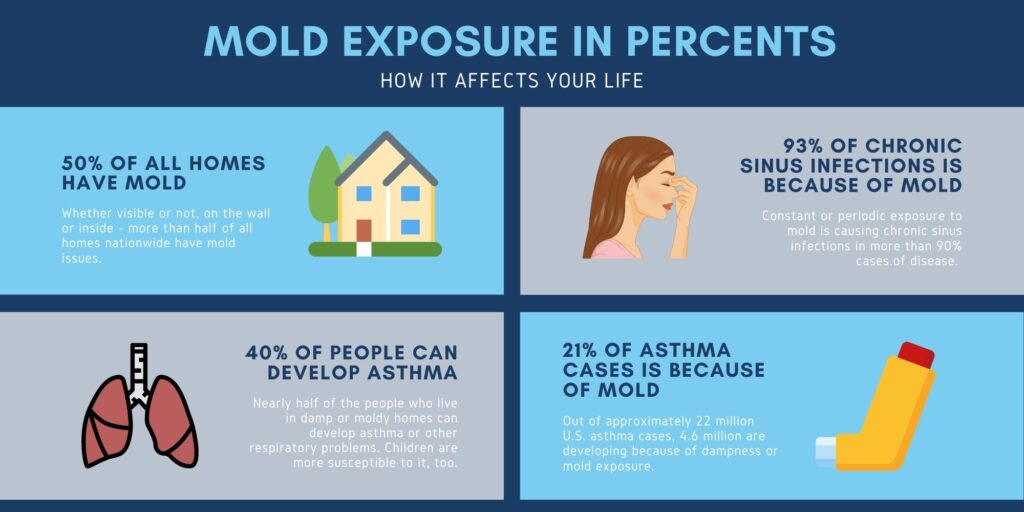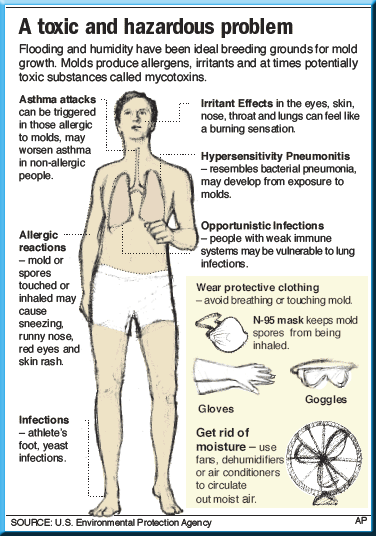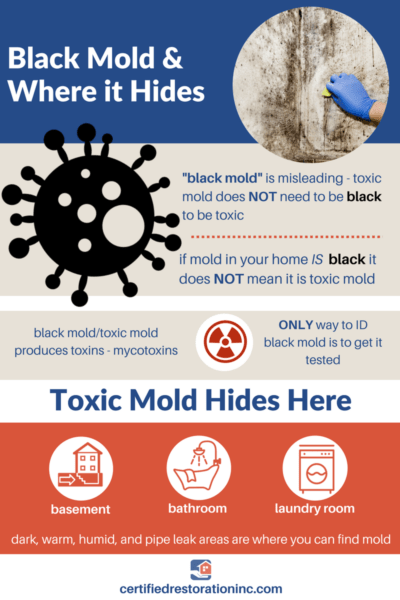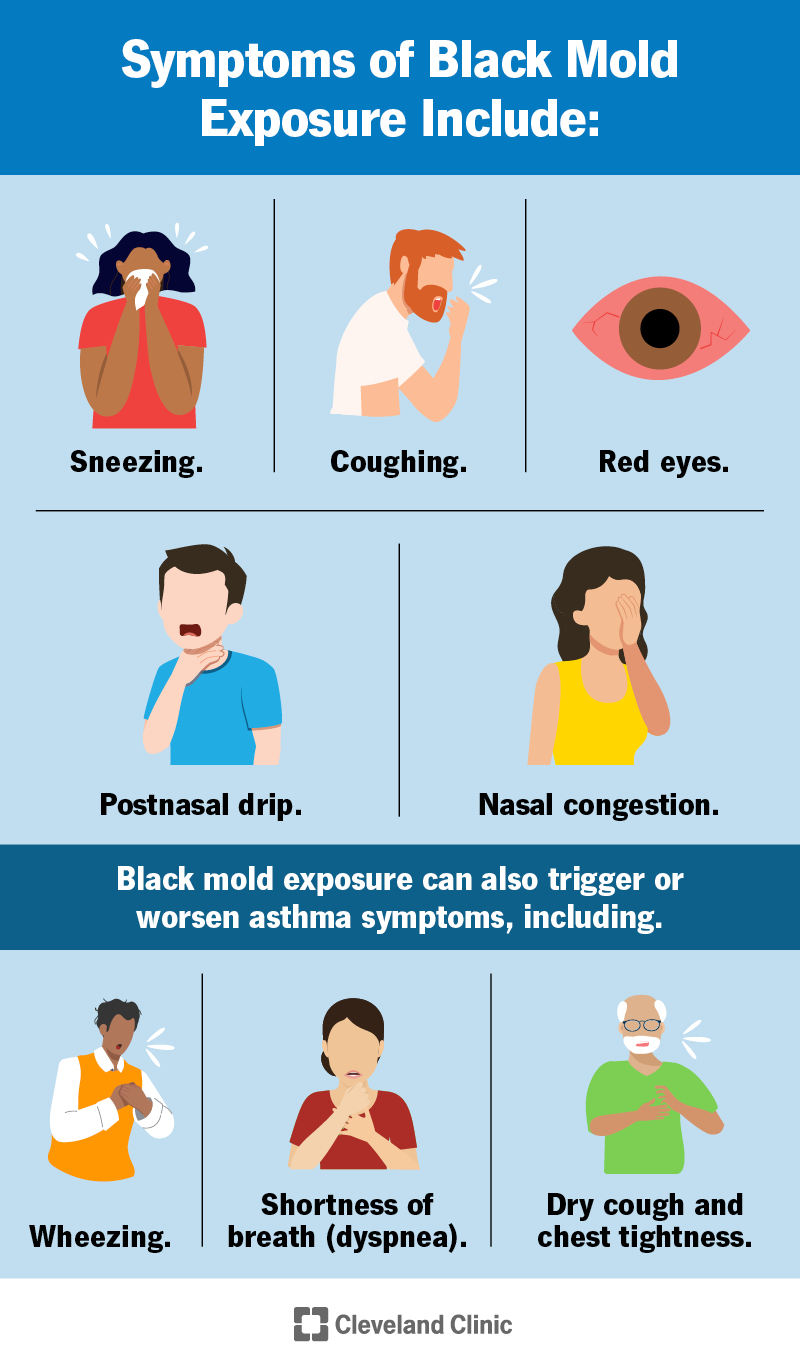Do you often experience unexplained allergies, respiratory issues, or skin irritation? These symptoms could potentially be attributed to mold exposure. In this article, we will explore the signs of mold exposure symptoms and how they can affect your health. By understanding these potential health effects, you will be better equipped to identify and address any mold-related concerns in your environment.
I. Common Symptoms
A. Respiratory Symptoms
If you have been exposed to mold, you may experience a range of respiratory symptoms. These can include coughing, wheezing, shortness of breath, and chest tightness. Mold spores can irritate the respiratory system and cause inflammation, leading to these symptoms. It is important to pay attention to any changes in your breathing patterns or respiratory discomfort, as it could be a sign of mold exposure.
B. Allergic Reactions
Mold can trigger allergic reactions in some individuals. If you are allergic to mold, you may experience symptoms such as sneezing, itching, runny nose, and nasal congestion. These symptoms can be similar to those of seasonal allergies, but they persist even when you are indoors. If you notice that your allergies are worse when you are at home or in certain environments, it might be a good idea to check for mold growth.
C. Skin Symptoms
Exposure to mold can also lead to skin symptoms. These can include rashes, hives, itching, and skin redness. Mold spores can come into contact with your skin and cause an allergic reaction or irritation. If you notice any unusual skin reactions that you cannot attribute to any other cause, it is worth considering the possibility of mold exposure.
D. Eye Irritation
Your eyes can also be affected by mold exposure. Symptoms may include redness, itching, watery eyes, and blurry vision. Mold spores can irritate the sensitive membranes of the eyes, leading to these discomforting symptoms. If you frequently experience eye irritation, especially in certain environments, mold might be a contributing factor.
E. Headaches and Dizziness
Headaches and dizziness can sometimes be associated with mold exposure. These symptoms may occur due to the release of mycotoxins, which are toxic substances produced by certain mold species. Mycotoxins can affect the nervous system and cause these neurological symptoms. If you often experience unexplained headaches or dizziness, mold exposure could potentially be a factor to consider.
II. Long-term Health Effects
A. Chronic Sinusitis
Long-term exposure to mold can contribute to chronic sinusitis. This condition is characterized by inflammation and swelling of the sinuses, leading to persistent nasal congestion, facial pain, and a reduced sense of smell. Mold spores can become trapped in the sinus passages and trigger ongoing inflammation, causing long-lasting sinus problems.
B. Asthma
For individuals with asthma, exposure to mold can worsen their respiratory condition. Mold spores can act as triggers for asthma attacks, leading to increased wheezing, coughing, and difficulty breathing. It is important for asthmatics to minimize exposure to mold to manage their symptoms effectively.
C. Hypersensitivity Pneumonitis
Hypersensitivity pneumonitis is an inflammatory lung disease that can be caused by mold exposure. This condition occurs when the immune system overreacts to the presence of mold spores, leading to lung inflammation. Symptoms may include shortness of breath, cough, fatigue, and weight loss. If you suspect that mold exposure is causing such symptoms, it is crucial to seek medical attention.
D. Pulmonary Hemorrhage
Although rare, certain molds, such as Stachybotrys chartarum, have been associated with pulmonary hemorrhage in infants. Pulmonary hemorrhage refers to bleeding in the lungs and can be life-threatening. If you have a young child and suspect mold growth in your home, it is important to take immediate action to ensure their safety.

III. Immune System Impact
A. Weakened Immune System
Exposure to mold can weaken the immune system, making you more susceptible to infections. Mold spores contain allergens, irritants, and mycotoxins that can put a strain on the immune system’s ability to function optimally. If you frequently catch colds or infections, mold exposure might be contributing to your weakened immune system.
B. Increased Susceptibility to Infections
As mentioned, exposure to mold can make you more prone to infections. Mold can weaken the respiratory system, making it easier for bacteria and viruses to invade. Additionally, mold can cause sinus infections and bronchitis, further increasing the risk of respiratory infections. If you find yourself getting sick frequently, particularly with respiratory infections, mold exposure could be a factor to consider.
C. Autoimmune Disorders
While the direct link between mold exposure and autoimmune disorders is still being researched, some studies have found associations between mold exposure and conditions such as rheumatoid arthritis and lupus. It is believed that the inflammatory responses triggered by mold exposure can potentially contribute to the development or exacerbation of autoimmune disorders. Further research is needed to fully understand this relationship.

IV. Neurological Effects
A. Cognitive Impairment
Exposure to mold has been linked to cognitive impairment and difficulties in concentration and memory. The presence of mycotoxins in mold can affect the central nervous system, leading to brain fog, confusion, and a decline in cognitive function. If you notice a decline in your mental clarity or have difficulty focusing, mold exposure could be a contributing factor.
B. Memory Problems
Memory problems can also be a result of mold exposure. Mycotoxins released by certain molds can interfere with neurotransmitters in the brain, impairing memory and cognitive function. If you frequently experience memory lapses or difficulties in retaining information, it is worth considering the possibility of mold exposure as a potential cause.
C. Confusion and Difficulty Concentrating
In addition to cognitive impairment and memory problems, mold exposure can also cause feelings of confusion and difficulty concentrating. The neurological effects of mold exposure can impact your ability to think clearly and stay focused on tasks. If you often find yourself feeling mentally foggy or struggle to concentrate, mold exposure might be a contributing factor.

V. Other Possible Health Effects
A. Fatigue and Weakness
Exposure to mold can contribute to chronic fatigue and feelings of weakness. The immune response triggered by mold exposure can be energy-consuming, leaving you feeling constantly tired and lacking in vitality. If you frequently experience fatigue and weakness, mold exposure could potentially be a contributing factor.
B. Nausea and Vomiting
In some cases, mold exposure can lead to gastrointestinal symptoms such as nausea and vomiting. This can occur if mold spores are ingested or if there is a strong mold odor that triggers a physiological response. If you regularly experience bouts of nausea and vomiting without an apparent cause, mold exposure might be worth investigating.
C. Digestive Issues
Mold exposure can also contribute to digestive issues such as abdominal pain, diarrhea, and bloating. These symptoms can occur if mold spores are ingested or if there is an underlying inflammatory response triggered by mold exposure. If you often experience digestive discomfort without a clear cause, mold exposure might be playing a role.
D. Weight Loss
In some cases, mold exposure can lead to unexplained weight loss. This can occur if mold-induced inflammation affects the digestive system, leading to poor absorption of nutrients. It can also result from the systemic impact of mold exposure on the body’s metabolism. If you are experiencing significant weight loss without a clear explanation, mold exposure could potentially be a factor to consider.
E. Respiratory Failure
While rare, severe mold exposure can potentially lead to respiratory failure. This occurs when the respiratory system is overwhelmed by the inflammatory response triggered by mold spores, leading to a severe deterioration in lung function. It is crucial to seek immediate medical attention if you experience extreme difficulty breathing or signs of respiratory distress.
In conclusion, mold exposure can have a range of potential health effects. From common symptoms such as respiratory issues and allergic reactions to more serious long-term health effects like chronic sinusitis and asthma, it is important to recognize the signs and take action. Mold exposure can also impact the immune system, neurological function, and overall well-being. If you suspect mold growth in your environment and are experiencing any of the mentioned symptoms, it is advisable to consult with a healthcare professional and take appropriate steps to address the issue. Remember, early detection and remediation can help mitigate the potential health risks associated with mold exposure.

